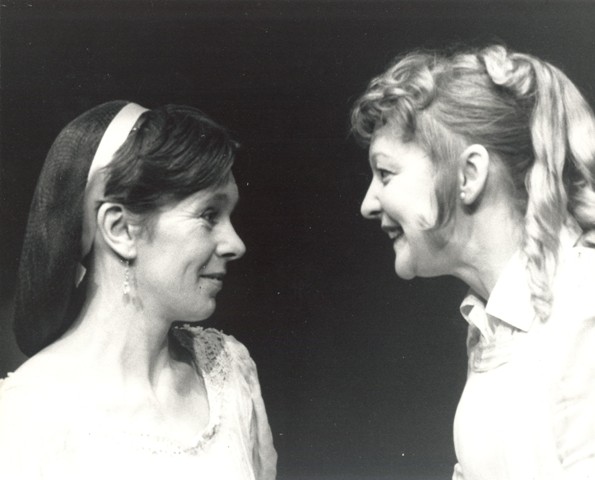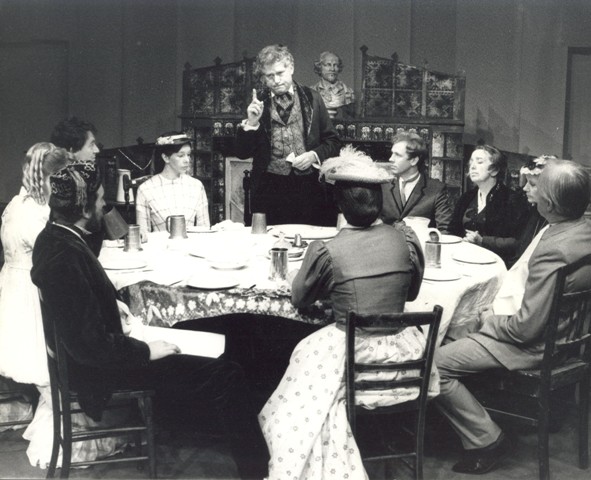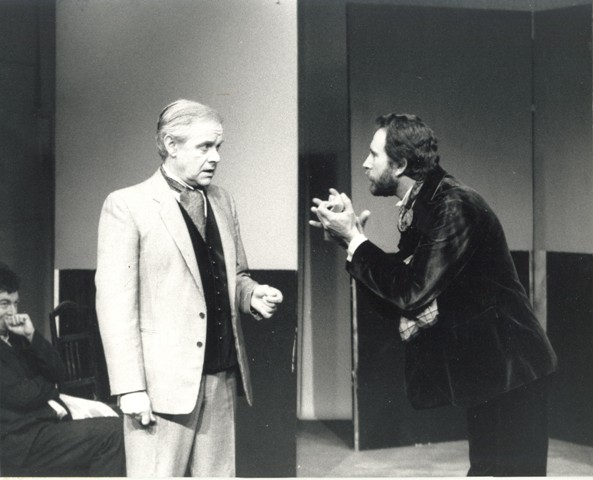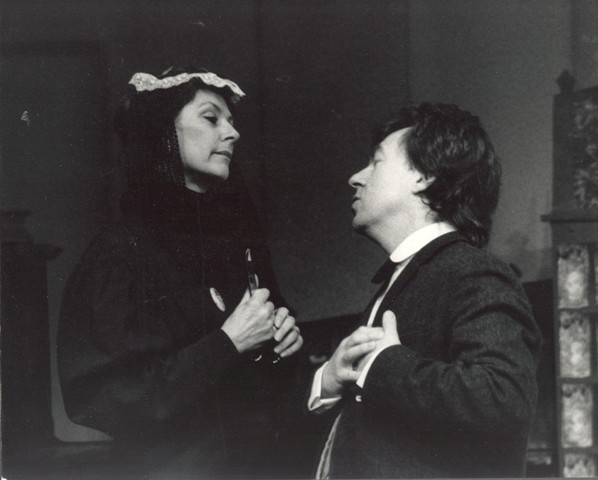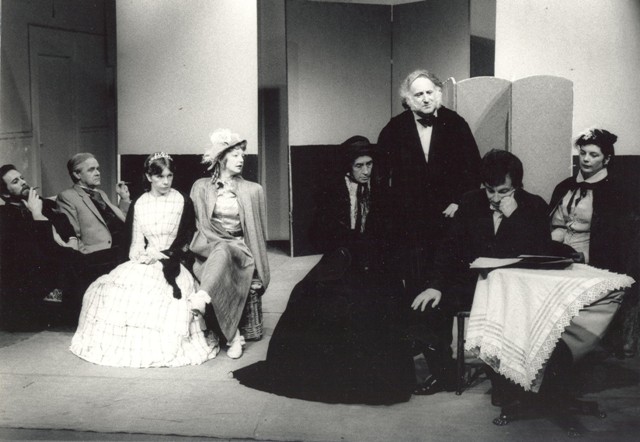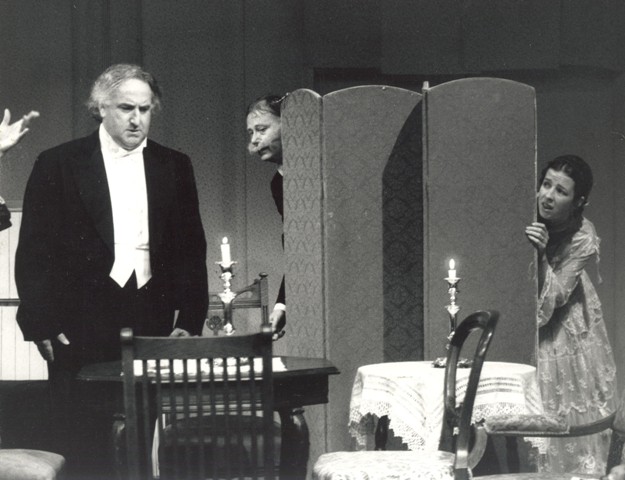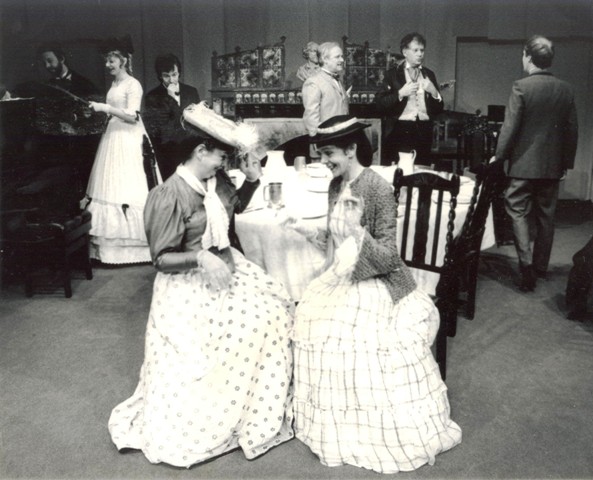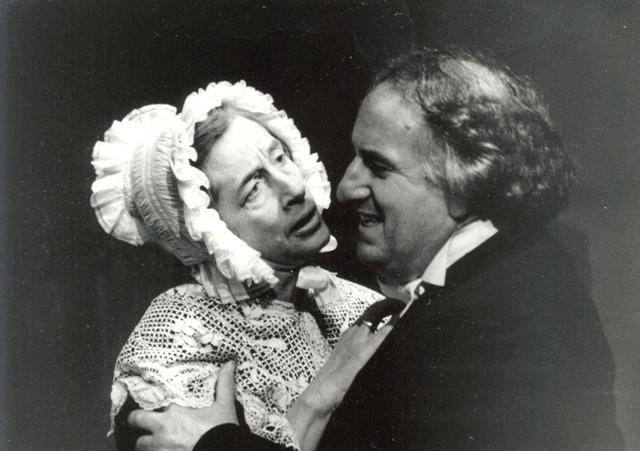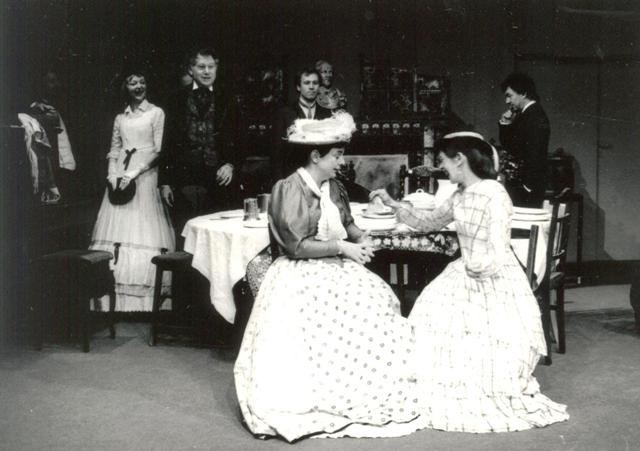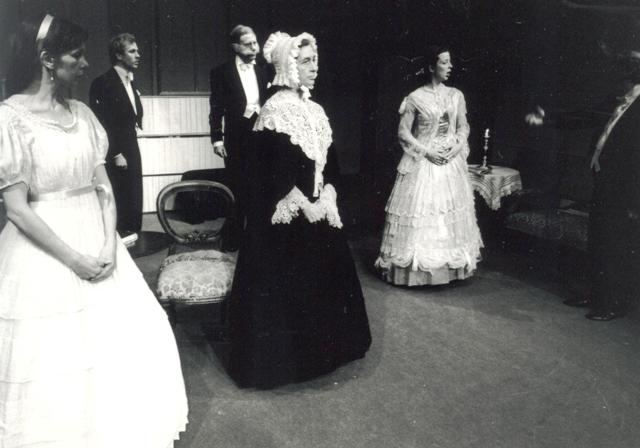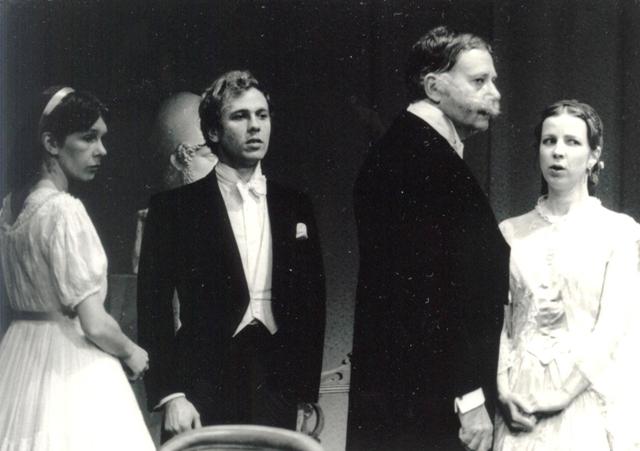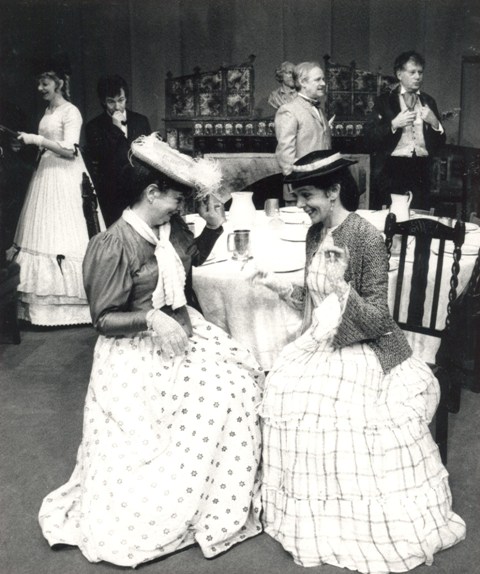The Bench Production
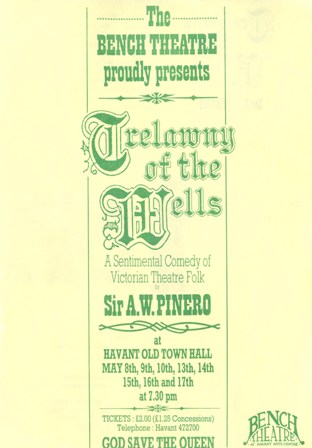
This play was staged at Havant Arts Centre, East Street Havant - Bench Theatre's home since 1977.
Characters
| James Telfer | Terry Cattermole |
| Augustus Colpoys | Stuart Hartley |
| Ferdinand Gadd | Peter Holding |
| Tom Wrench | Tony Kellaway |
| Mrs Telfer | Janet Simpson |
| Aviona Bun | Jane Hart |
| Rose Trelawny | Jo German |
| Imogen Parrot | Nicola Scadding |
| O'Dwyer | Stuart Hartley |
| Members of the Company of the Pantheon Theatre | Peter Holding Bill Bickers Stephen Evans Alison Habens |
| Hall Keeper | Robbie Cattermole |
| Sir William Gower | Derek Cusdin |
| Arthur Gower | David Brown |
| Clara de Foenix | Veronica Kellaway |
| Miss Trafalgar Gower | Robbie Cattermole |
| Captain de Foenix | Terry Cattermole |
| Mrs Mossop | Ruth Prior |
| Mr Ablett | Stephen Evans |
| Sarah | Alison Habens |
| Charles | Stephen Evans |
Crew
| Director | John Scadding |
| Stage Manager | Bill Bickers |
| Assistant Stage Managers | Karen Bickers Mike Boyce |
| Lighting | Jude Salmon |
| Sound | Ben Payne |
| Costumes | Ingrid Corrigan |
| Poster | Pete Woodward |
| Set Design | David Penrose |
| Publicity | Sue Cooremans Barbara Lynch |
| Fittings | Sheila Spackman |
Director's Notes
In the 1860s when Pinero was a boy, a new start was made in English Theatre. T W Robertson, a not very successful actor rented a tatty old theatre in Tottenham Court Road and put on his own new play. This was the start of the new 'well made play' in England. This new style eventually swept away the melodrama theatres replacing them with smaller theatres and small cast plays with French windows and all that. Oscar Wilde, Noel Coward, J B Priestly and Rattigan followed and this kind of play is still being written today.
Pinero saw the start of this new, more intelligent theatre, approved of it and wrote in the new Robertson style himself. However, looking back in middle age, as he wrote 'Trelawny' he not only rejoiced in the new drama created by Tom Wrench/Tom Robertson but he case a loving glance back to the bad old theatre of the 'little brain' and the 'big voice' and he rather wondered if perhaps as much had been lost as was gained now that the new 'cup and saucer' drama had been invented.
Ah if only we could cry "anyone for tennis" and hiss the villain in the same play. Well, we can tonight for in this little comedy Pinero strives to place itsy bitsy naturalism with good old ham and does he slice thick chunks of it.
Well, so there you are then. Have a nice play.
John Scadding
Reviews
The News Tom Hughes
Players make the best of comedy
It is ironical that on a night when Victorian standards were being put to the test, and as some would say, the sword, the Bench Theatre was putting Victorian on the rack at Havant Old Town Hall. Pinero's 'Trelawny of the Wells', when viewed through Elizabethan glasses, is as dated as a "Cries of London" print, but with definite humour. The Bench Players have combined to run over these places and deliver the meat of this romantic comedy with a great deal of enthusiasm and aplomb.
When actress Rose Trelawny, convincingly played by Jo German, is wooed by Arther Gower, heir to the Grantham title (a little more irony there) aristocratic hands are wrung, and Nell Gwynne's ghost lurks in every corner. There is something for everybody in this light-hearted romp and all the players seems to make the most of what they have to do, though I was particularly taken with Jane Hart's interpretation of Avonia Bunn.
This is the first time I have seen the Players in action and I was much impressed with the way they handled material, which while not perhaps as waspish and witty as Wilde, still contained plenty to laugh and think about.
The News, 9th May 1986
